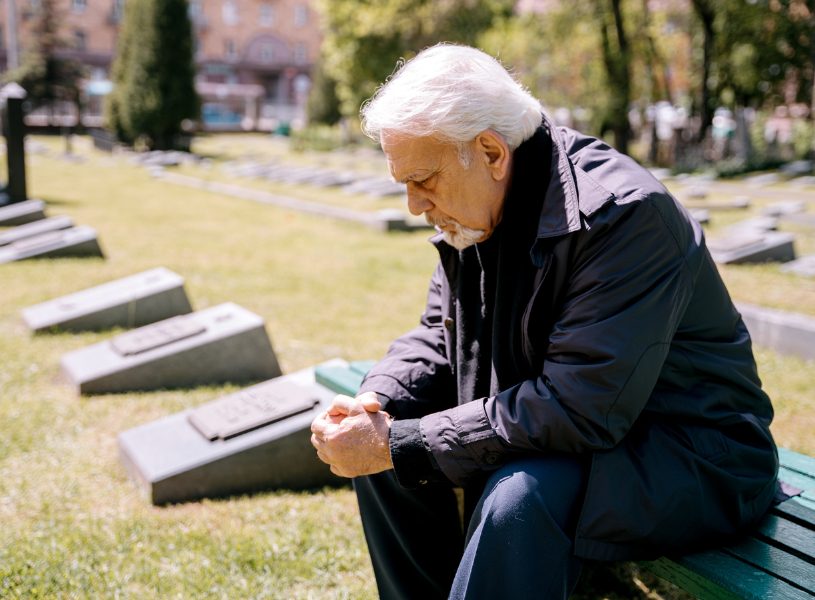Grieving the loss of a loved one is an intensely personal and emotional experience, and knowing how to support someone going through it can be challenging. While there is no one-size-fits-all solution to helping someone cope with bereavement, there are several approaches that can provide emotional comfort and practical help during this difficult time.
Understanding Grief Reactions
Grief can manifest in many different ways, and it’s important to understand that everyone grieves differently. While some people may openly express their sadness, others may internalise their feelings, making it harder to recognise their pain. Common reactions to grief include:
Shock and disbelief: Even when a loss is expected, the reality can be difficult to accept. A bereaved person may struggle to come to terms with the loss, experiencing a sense of numbness or detachment.
Sadness and despair: Deep feelings of sadness, loneliness, and hopelessness are often central to the grieving process. This sadness may ebb and flow, appearing stronger on certain days, like birthdays or anniversaries.
Anger and frustration: Some people may experience anger, either directed at themselves, others, or the circumstances surrounding the loss. This is a natural part of grief, as it often accompanies feelings of helplessness.
Guilt: The bereaved may have feelings of guilt, wondering if they could have done something differently to prevent the loss, or if they didn’t spend enough time with the person who has passed.
Fear and anxiety: Losing someone close can provoke fears about the future, such as anxiety over their own mortality or the changes to their life without their loved one.
Tips for Offering Emotional Support
Providing support for a grieving loved one is about being present and offering a non-judgmental space for them to express their feelings. Here are some ways you can help:
- Listen without offering solutions: One of the most valuable things you can do is listen. Let your loved one talk about their feelings, memories, and thoughts without trying to fix the situation. Avoid clichés like “They’re in a better place” or “It was their time,” as these can often feel dismissive.
- Acknowledge their pain: Grief is a natural response to loss, and acknowledging their feelings can be validating. Say things like, “I can’t imagine what you’re going through, but I’m here for you,” or “It’s okay to feel sad, angry, or confused.”
- Be patient: Grieving is a process that doesn’t follow a linear timeline. Your loved one may experience intense grief one day and appear more at peace the next. Patience and understanding are key.
- Offer practical help: Grief can be overwhelming, and everyday tasks can feel impossible. Offer to help with specific tasks, such as cooking meals, picking up groceries, or running errands. Don’t simply say, “Let me know if you need anything,” as the bereaved may find it difficult to ask for help.
- Encourage self-care: While grieving, many people forget to take care of their physical and emotional well-being. Gently remind your loved one to eat, rest, and take breaks when needed. You can even offer to join them for a walk or other low-pressure activities that promote self-care.
Coping Strategies for Grief
There are several coping strategies that can help those who are grieving manage their emotions over time. As a supportive friend or family member, you can suggest these techniques while offering your ongoing assistance:
Create a memory ritual: Suggest that they create a memory book or engage in a ritual that honours their loved one’s memory. This could include lighting a candle, writing letters to the deceased, or visiting places that were special to them.
Join a support group: Encouraging your loved one to join a bereavement support group can provide a sense of community. Being with others who are also experiencing loss can offer emotional validation and reduce feelings of isolation.
Seek professional help: In some cases, grief can lead to prolonged periods of depression or anxiety. If your loved one seems stuck in their grief or is struggling to cope, suggest professional counselling. Grief counsellors can offer targeted strategies to help navigate difficult emotions.
Local Bereavement Support in New Zealand
For those grieving in New Zealand, there are several resources and support services available:
Grief Centre: These organisations provide counselling, therapy, and group support for those dealing with loss. Many services are available across New Zealand and can be accessed locally or online.
Skylight Trust: Offering nationwide support, Skylight Trust provides resources for people affected by grief, trauma, and loss. They offer counselling and helpful resources that can be accessed online.
Seasons for Growth: This organisation offers programmes specifically designed to help people of all ages process loss, change, and grief.
Hospice New Zealand: Many hospices in New Zealand offer bereavement support for families who have lost a loved one, including counselling and support groups.
Griefline NZ: A helpline for individuals struggling with loss. The organisation offers a free and confidential service, connecting callers with trained counsellors who provide emotional support.
Supporting a loved one through bereavement requires patience, empathy, and understanding. By offering emotional and practical help, acknowledging their grief, and connecting them with local resources, you can provide the support they need during this challenging time. At Rowley Funerals, we are committed to helping families navigate the complexities of grief and offer compassionate guidance throughout the process. Please visit our bereavement page here for more information.
